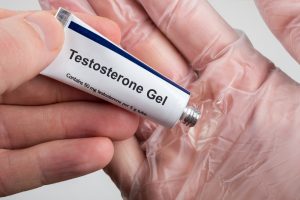If your testosterone levels are low, your doctor may advise you to undergo testosterone replacement therapy. Having low testosterone in the body can cause a variety of signs and symptoms that can be detrimental to your sexual and other important bodily functions.
The important functions of testosterone
Primarily produced in the testicles, testosterone is a hormone that helps in several processes that a man’s body goes through throughout his life, such as:
Physical
- Development of muscles and bones
Testosterone is essential in the formation and development of muscles and bones that are strong and healthy. Without it, muscle and bone loss, osteoporosis, and other medical problems may arise.
- Fat distribution
Testosterone helps in the distribution of body fat for health and weight maintenance. A shortage of testosterone in the body may increase risk of high cholesterol, obesity, and other health issues.
- Growth of body hair
Testosterone facilitates the growth of body hair, including facial hair, pubic hair, chest hair, and underarm hair. If you have low testosterone levels in the body, you may suffer from hair loss.
- Increase in height
Testosterone promotes the growth of a young boy, especially once he hits puberty. If there is a shortage in testosterone, he may not grow as tall as other kids his age.
- Enlargement of the male genitalia
Testosterone aids in the growth and development of the penis and the testicles for better function. If you have low testosterone levels, your genitals may remain small or underdeveloped.
Sexual
- Management of sex drive

Testosterone helps in regulating your sex drive or libido. Those with low testosterone may experience a decline in their desire for sex.
- Production of sperm
Testosterone is vital to the production of enough amounts of healthy sperm. If you have abnormally low testosterone, you may have to deal with reduced sperm count and sperm quality.
Testosterone levels in men
In general, testosterone levels in men reach their highest around adolescence to early adulthood. And, after 30 years old, their testosterone levels start to decrease slowly, at a rate of 1% a year.
The following are the normal testosterone levels in men per age group:
- From age 10 years to 14 years: <7 – 1,200 nanograms per deciliter
- From age 15 years to 16 years: 100 to 1,200 nanograms per deciliter
- From age 17 years to 25 years: 300 to 1,200 nanograms per deciliter
- From age 25 years to 29 years: 257 to 1,081 nanograms per deciliter
- From age 30 years to 49 years: 201 to 993 nanograms per deciliter
- From age 50 years to 59 years: 170 to 918 nanograms per deciliter
- From 60 years and above: 130 to 900 nanograms per deciliter
Dealing with low testosterone
If your body’s testosterone levels drop, you may manifest a number of signs and symptoms, such as:
1. Sleeping problems
Low testosterone levels in the body may negatively affect your sleep patterns, and increase your risk of insomnia, sleep apnea, and other sleeping disorders.
2. Impaired sexual function
If your testosterone levels decrease, you may suffer from reduced libido, difficulties getting or maintaining an erection, low sperm count and quality, and even infertility.
3. Increased body fat
Because one of the most important roles of testosterone is body fat distribution, having low testosterone may lead to an increase in your body fat.
4. Muscle and bone loss
A shortage of testosterone in the body may lead to reduced muscle mass and strength, bone density, and others, which may also negatively impact energy levels, fitness, and other physical aspects.
5. Hair loss
Not having enough testosterone in the body may make it difficult for your body to promote the growth of facial hair, pubic hair, chest hair, underarm hair, and other body hair.
6. Poor mental and emotional health
Low testosterone levels may impact your stress and anxiety levels, make you more prone to depression and other mental health problems, and decrease your self-esteem and motivation. They may also cause problems with concentration, memory, and others.
Information on testosterone replacement therapy
To solve low testosterone problems, doctors usually prescribe testosterone replacement therapy. This treatment options can aid in increasing the testosterone levels in the body and eliminate the signs and symptoms that may have appeared.
Nowadays, there are several types of testosterone replacement therapy available. Your doctor may prescribe you any of the following to help you take your testosterone levels back up to normal:
- Injections
These are administered by injecting directly into the skin, allowing testosterone to get absorbed into the bloodstream.
- Pills
These are taken orally to add more testosterone into the body.

- Gels and patches
These are applied onto the skin, usually on the arm, neck, and shoulders, to introduce more testosterone into the body.
Risks of testosterone replacement therapy
While testosterone replacement therapy has been proven effective in enhancing testosterone levels in men, it also comes with various risks. Sometimes, it may:
Worsen your sleep apnea
Men who undergo testosterone replacement therapy may experience more breathing difficulties while asleep.
Cause skin problems
Testosterone replacement therapy may make your skin produce more oil, causing more acne and pimples.
Reduce sperm count
In some cases, testosterone replacement therapy in men has been found to slow down the production of sperm, resulting to a lower sperm count.
Decrease testicle size
Certain studies have found that very high testosterone levels in the body may cause the testicles to shrink or reduce in size.
Increase the risk of heart problems
Various researchers have discovered how doing testosterone treatment therapy may raise your likelihood of getting afflicted with heart attack, stroke, and other heart diseases.
Talking to your doctor about testosterone replacement therapy is necessary because of the long list of negative side effects this type of treatment can bring. You should not try to cure yourself using this method without any medical supervision or doctor’s prescription to not put yourself in a much direr situation.







